The Cold Hard Facts


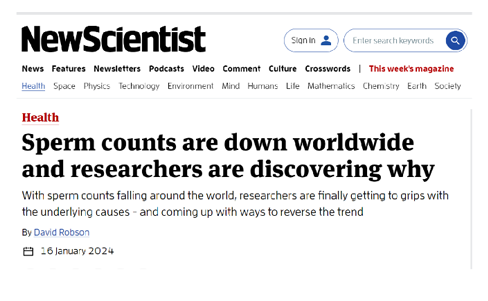
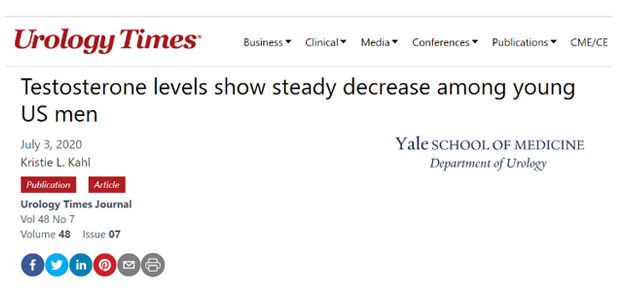
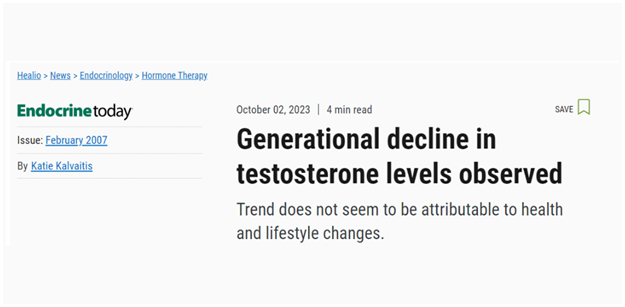
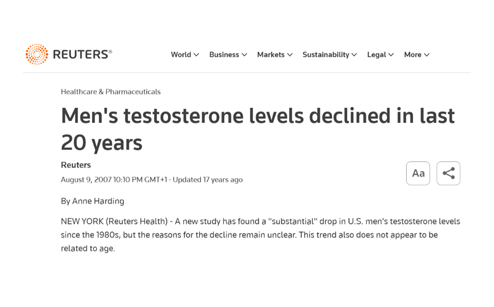
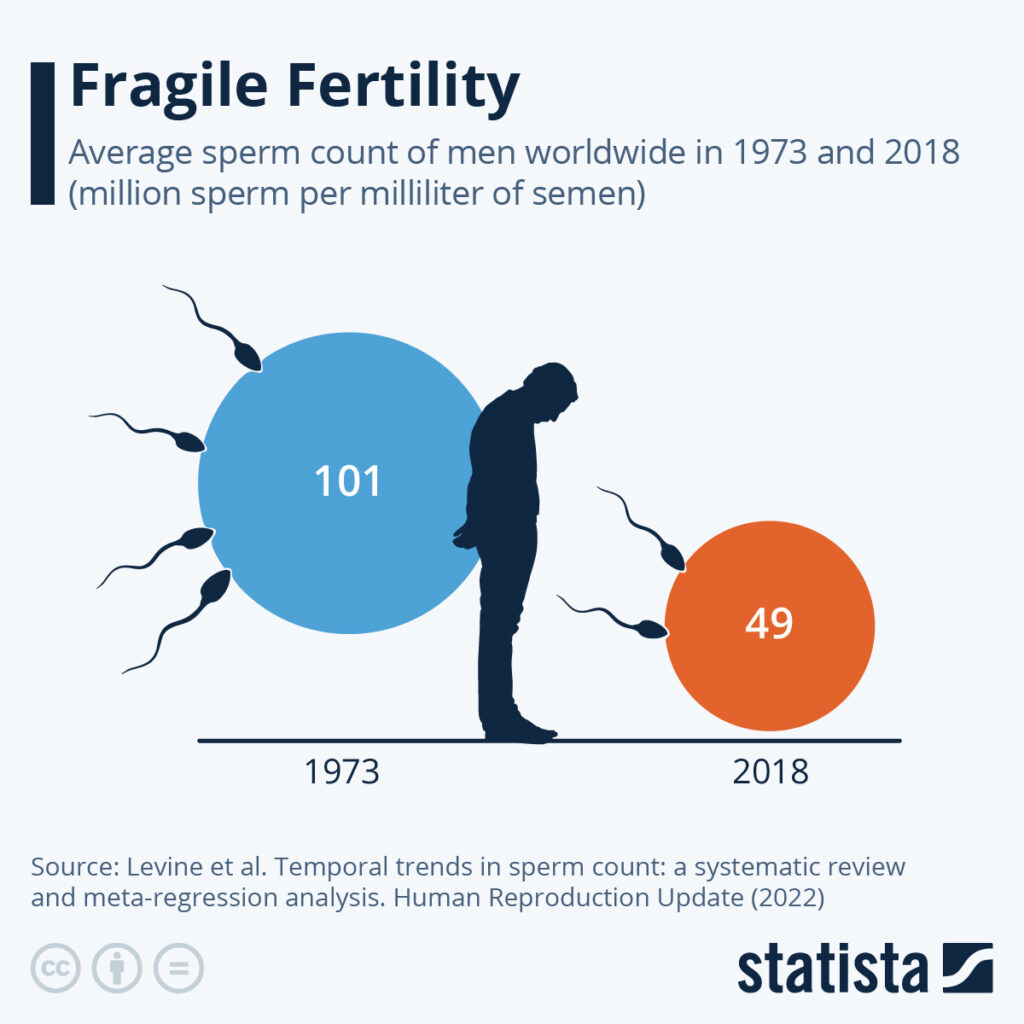
Over the past five decades, research has consistently shown a significant global decline in sperm counts. This phenomenon, documented in numerous studies, indicates a decrease of more than 50% in both sperm concentration and total sperm count among men from various regions around the world. Factors contributing to this decline include environmental, lifestyle, and possibly genetic changes. These factors encompass exposure to chemicals and pollutants, changes in diet and physical activity levels, increased stress, and rising obesity rates. The decline in sperm quality and quantity poses potential threats to male fertility, with broader implications for overall human reproductive health and demographic trends
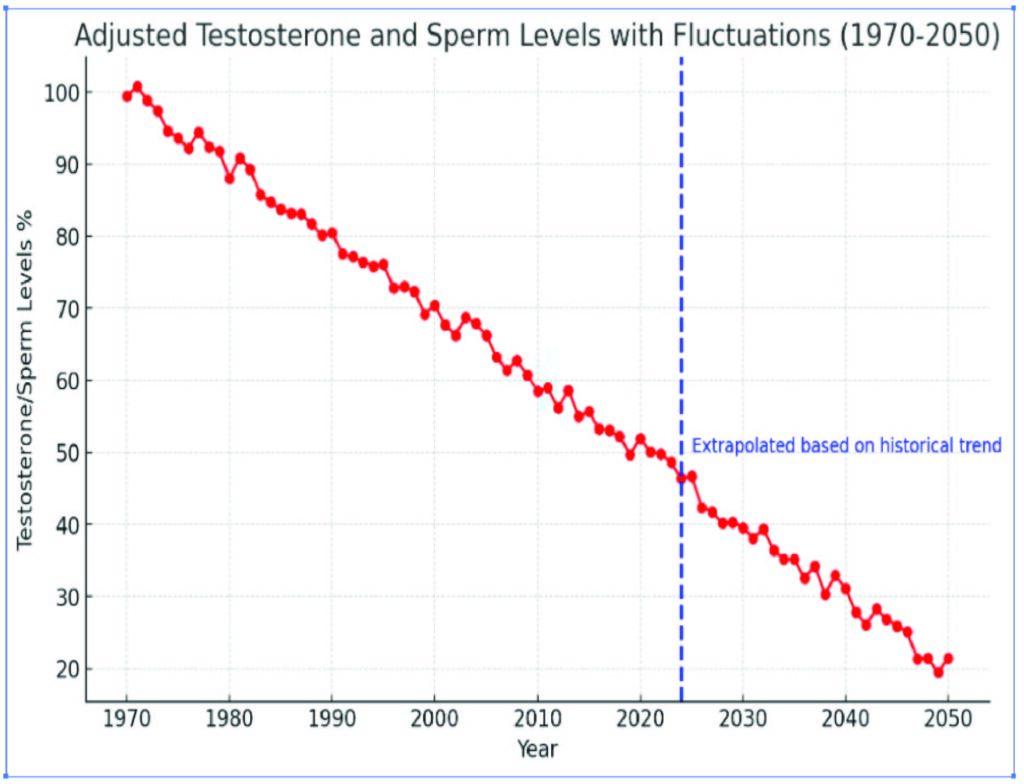
Parallel to the alarming decline in sperm counts over the last 50 years, global testosterone levels in men have also experienced a significant downturn. This trend, like the reduction in sperm quality and quantity, is influenced by a complex interplay of environmental, lifestyle, and health-related factors. Environmental pollutants, sedentary lifestyles, obesity, stress, and changes in diet are among the key contributors. The decline in testosterone levels not only affects fertility but also has broader health implications, including impacts on muscle mass, bone density, and overall well-being. This phenomenon is interconnected with the decrease in sperm counts, suggesting a multifaceted crisis in male reproductive health that could have profound implications for individual health as well as population dynamics.

